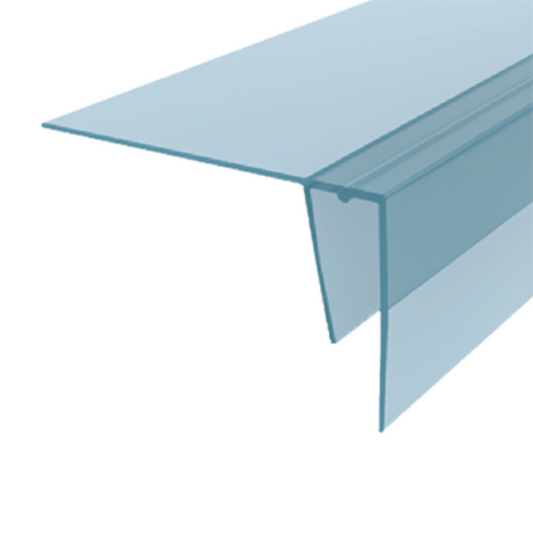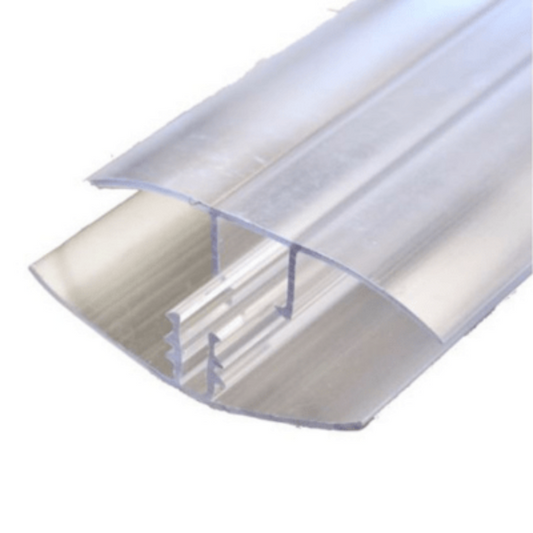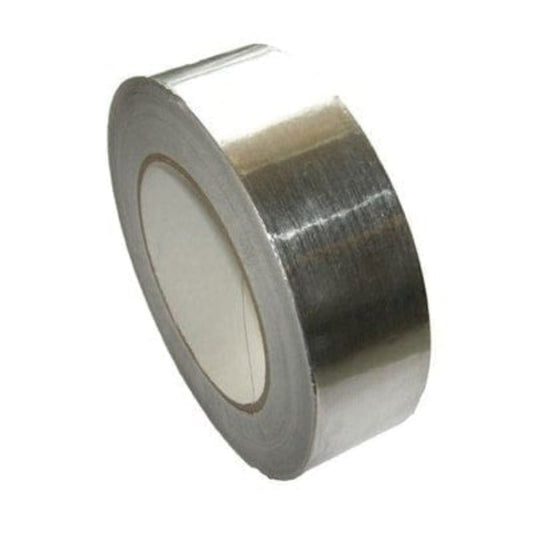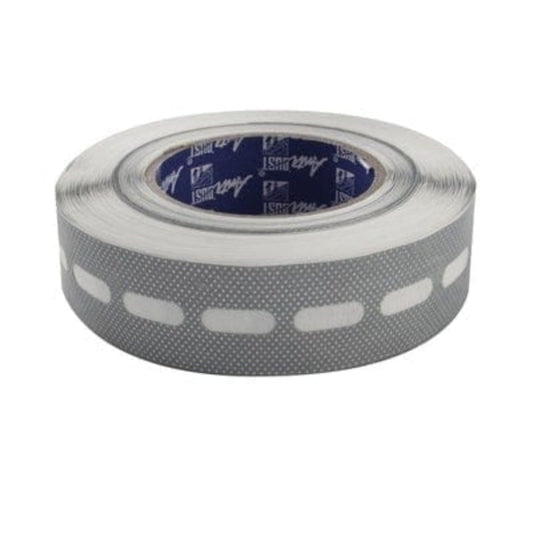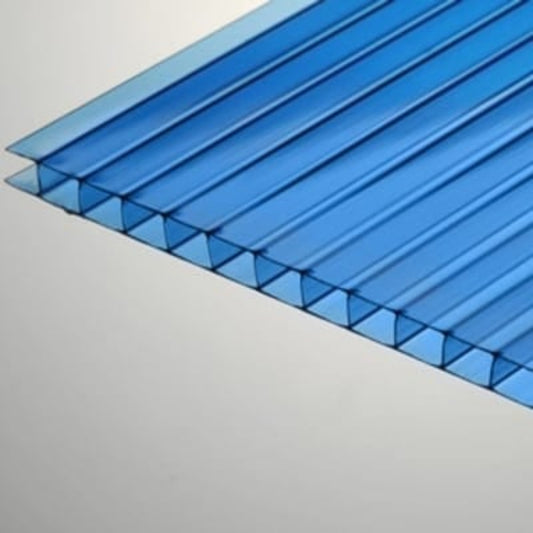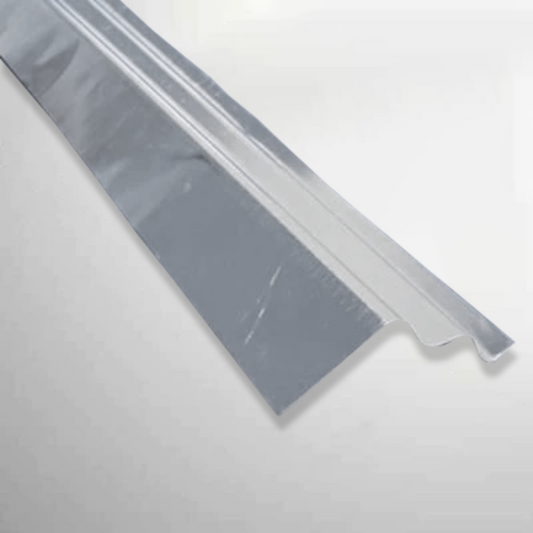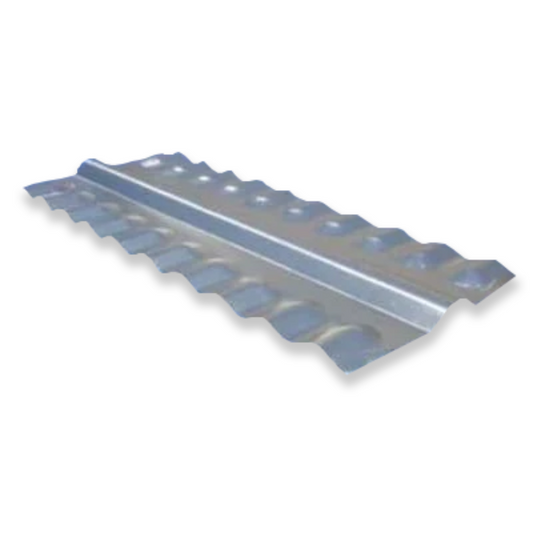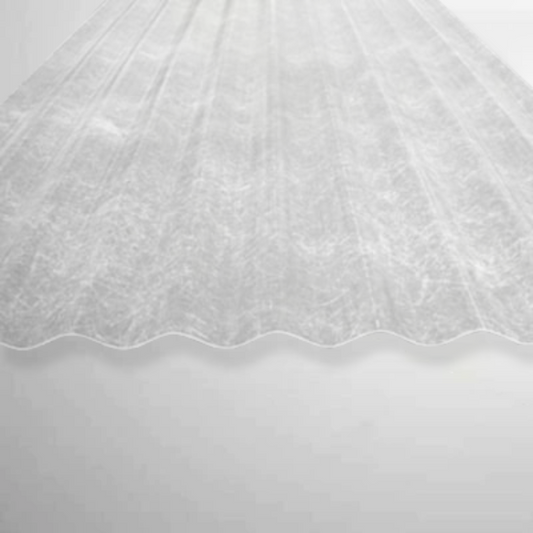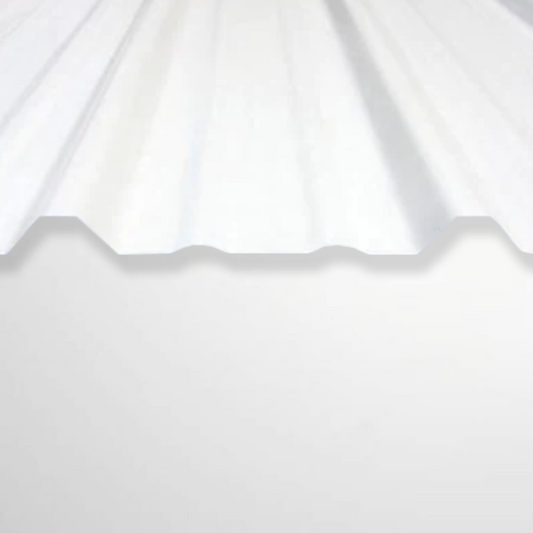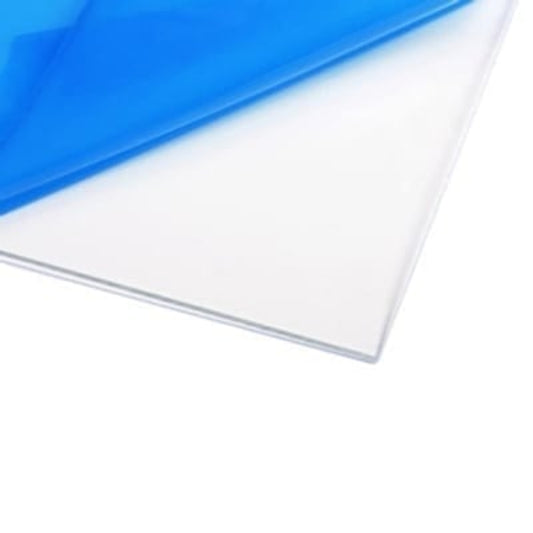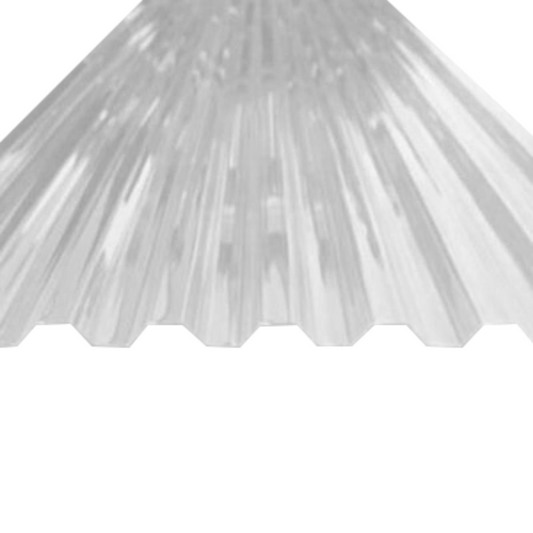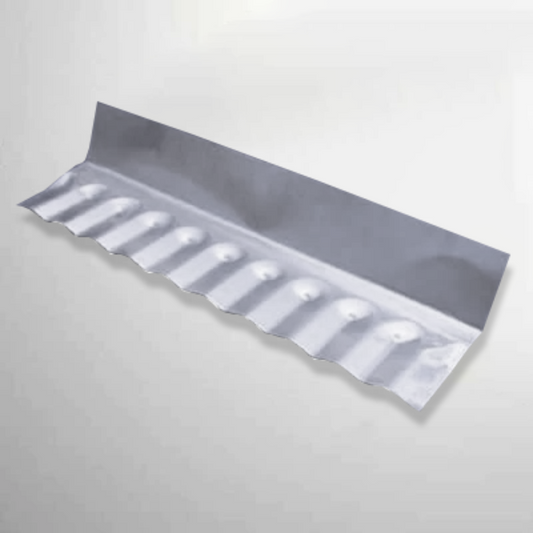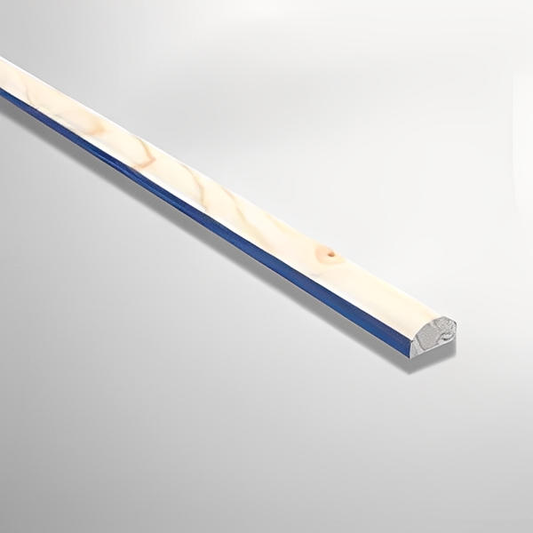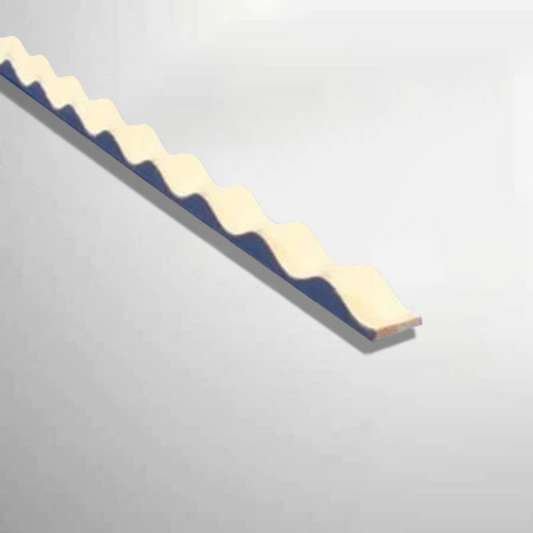-
DIY Polycarbonate Lean-To Roof Kit
Vendor:Roofing4US PolycarbonatefromRegular price $324.29Sale price $324.29 Regular priceUnit price per -
Twinwall Polycarbonate Sheet - All Sizes
Vendor:Roofing4US PolycarbonatefromRegular price $41.78Sale price $41.78 Regular priceUnit price per -
16mm RDC Polycarbonate Storm Panel - Clear - All Sizes
Vendor:Roofing4US PolycarbonatefromRegular price $5.57Sale price $5.57 Regular priceUnit price per -
8mm PoliSoft Twinwall Polycarbonate - All Sizes
Vendor:Roofing4US PolycarbonatefromRegular price $5.56Sale price $5.56 Regular priceUnit price per -
U-Channel - All Sizes
Vendor:Roofing4US PolycarbonatefromRegular price $7.27Sale price $7.27 Regular priceUnit price per -
H-Channel For Twinwall Polycarbonate Sheet - All Sizes
Vendor:Roofing4US PolycarbonatefromRegular price $17.22Sale price $17.22 Regular priceUnit price per -
Snap H Profile - 6mm - 10mm - All Sizes
Vendor:Roofing4US PolycarbonatefromRegular price $41.70Sale price $41.70 Regular priceUnit price per -
Multiwall Tape - 1 In x 150ft
Vendor:Roofing4US PolycarbonateRegular price $60.00Sale price $60.00 Regular priceUnit price per -
Multivent Tape - 1 In x 110ft
Vendor:Roofing4US PolycarbonateRegular price $61.64Sale price $61.64 Regular priceUnit price per -
6 Oz Corrugated Fiberglass Sheet - All Sizes
Vendor:Roofing4US PolycarbonatefromRegular price $61.02Sale price $61.02 Regular priceUnit price per -
FRP R-Panel 162DL Duralite White 8oz Sheet - All Sizes
Vendor:Roofing4US PolycarbonatefromRegular price $206.76Sale price $206.76 Regular priceUnit price per -
Clear Acrylic Sheet - All Sizes
Vendor:Roofing4US PolycarbonatefromRegular price $52.61Sale price $52.61 Regular priceUnit price per
Polycarbonate Sheets | Polycarbonate Sheet | Sheets
Explore our diverse collection of high-quality polycarbonate sheets on Roofing4us.com. Renowned for their durability, light transmission, and resistance against extreme weather, these sheets are the ideal choice for a variety of roofing projects. Whether you're constructing a greenhouse or a pergola, our extensive range ensures that you'll find the perfect fit for any application. Start building with confidence and clarity today!
Types of Polycarbonate Sheets & Accessories
Standard Polycarbonate Sheets
Clear Hammered Sheet: Suitable for those who prefer a textured finish while maintaining transparency. Ideal for privacy partitions without sacrificing light.
Clear Acrylic Sheet: Though not strictly polycarbonate, acrylic offers similar transparent properties and can be used for similar applications.
Corrugated Sheets
Greca Polycarbonate Corrugated Clear Roofing Sheet: Combines the strength of polycarbonate with a corrugated design, perfect for roofing that requires durability and light transmission.
6 Oz & 8 Oz Corrugated Fiberglass Sheets: Lightweight and durable sheets that are perfect for outdoor projects requiring rugged materials.
Multiwall Polycarbonate Sheets
Multiwall Polycarbonate Sheet: These have multiple layers, providing enhanced insulation and are perfect for places with extreme weather conditions.
Twinwall Polycarbonate Sheet: With two layers, these sheets provide good insulation and are commonly used in greenhouses.
Accessories
U-Channel & H-Channel For Twinwall Polycarbonate Sheet: These are essential for joining and sealing multiwall sheets.
Multiwall Tape & Multivent Tape: For sealing the edges of multiwall sheets, ensuring longevity and performance.
Horizontal & Vertical Corrugated Closure Strips: Useful for ensuring a snug fit and sealing when using corrugated sheets.
Aluminum Sections (Sidewall, Endwall Flashing, Ridge Roll): These are vital for sealing and finishing off roofing structures, ensuring waterproofing and stability.
Guide to Selection
Greenhouses: Opt for multiwall sheets like the Twinwall or standard Multiwall for their insulation properties.
Pergolas & Patios: The Greca Corrugated sheets or Clear Hammered Sheets can provide a balance between aesthetic and function.
DIY Projects: The DIY Polycarbonate Lean-To Roof Kit provides an all-in-one solution for those looking to construct a lean-to structure.
Roofing with High Light Transmission: The clear sheets, either acrylic or polycarbonate, would be most suitable.
For Privacy: Consider the Clear Hammered Sheet or tinted polycarbonate sheets for areas where light is desired, but direct visibility isn't.
Polycarbonate Sheets
Polycarbonate sheets are a type of thermoplastic material renowned for their exceptional strength, durability, and see-through characteristics. They find extensive use in various industries and applications due to their unique qualities. These sheets are highly resistant to impact, making them a popular choice for safety glazing and protective barriers. They offer excellent clarity, allowing light to pass through just like glass, which makes them suitable for applications such as skylights, greenhouse panels, and windows where both visibility and natural light are essential. Additionally, polycarbonate sheets come with UV protection, safeguarding against harmful ultraviolet rays, and making them suitable for outdoor use without yellowing or deterioration. Despite their impressive strength, these sheets are lightweight, making handling and installation hassle-free. Moreover, they are designed to endure extreme weather conditions, including high temperatures, rain, and snow, without significant degradation.
Polycarbonate sheets have a wide range of applications, including building construction for roofing, skylights, canopies, and safety glazing. They are also commonly used in greenhouses for optimal plant growth, outdoor signage and displays due to their weather resistance and impact strength, and as machine guards in industrial settings to protect workers while maintaining visibility. In high-security environments, like banks or government buildings, these sheets serve as bullet-resistant and forced-entry-resistant glazing materials. Additionally, they find use in the automotive industry for headlight lenses and sunroof panels, as well as in electronic devices for display screens and protective covers. It's essential to consider the different types of polycarbonate sheets available, such as solid sheets, multiwall sheets, and corrugated sheets, depending on the specific application and required properties.
Does polycarbonate sheet lasts long?
Yes, polycarbonate sheets are known for their long-lasting durability. When properly installed and maintained, polycarbonate type sheets have a relatively long lifespan compared to many other materials. They are designed to withstand a wide range of environmental conditions and physical stress, which contributes to their longevity.
Some key factors that contribute to the long lifespan of polycarbonate sheet includes:
High Impact Resistance: Sheets of polycarbonate are incredibly resilient to impacts and are virtually unbreakable. This makes sheets of polycarbonate highly resistant to damage from accidental impacts or harsh weather conditions.
Weather and UV Resistance: Sheets of polycarbonate are formulated to be UV-resistant, which means they can withstand prolonged exposure to sunlight without yellowing, fading, or becoming brittle. This UV resistance helps them maintain their transparency and structural integrity over time.
Chemical Resistance: Sheets of polycarbonate exhibit good resistance to many chemicals, making these sheets of polycarbonate suitable for various industrial and outdoor applications where exposure to chemicals is a concern.
Temperature Stability: Sheets of polycarbonate have excellent dimensional stability and can withstand a wide range of temperatures without significant expansion or contraction, contributing to their long-term performance.
Low Maintenance: These sheets of polycarbonate require minimal maintenance to retain their properties. Regular cleaning of these sheets with mild soap and water is usually sufficient to keep them in good condition.
It's important to note that the actual lifespan of sheets of polycarbonate can vary depending on factors such as the quality of the material, the specific application, and the level of maintenance they receive.
What is clear polycarbonate type sheets used for?
Clear polycarbonate type sheets find extensive use in various applications where transparency, strength, and longevity are crucial. These sheets of polycarbonate are a specific type of polycarbonate material known for their optical clarity, making them an excellent option in scenarios requiring visibility. Here are some common applications of clear polycarbonate type sheets:
Skylights and Canopies: Transparent polycarbonate type sheets are commonly employed in skylights and canopies to enable natural light to enter while safeguarding against the elements. Their clarity allows efficient light transmission, making them well-suited for enhancing indoor spaces with natural daylight.
Greenhouses: In agriculture, clear polycarbonate type sheets are utilized in greenhouse structures, permitting sunlight to pass through and creating an optimal environment for plant growth while protecting the plants from external weather conditions.
Windows and Glazing: Clear polycarbonate type sheets are frequently used as a safer alternative to glass in windows and glazing applications. These sheets of polycarbonate offer high impact resistance, making them suitable for areas where safety and protection against breakage are paramount.
Safety and Security Glazing: Thanks to their exceptional impact resistance, clear polycarbonate type sheets are employed in security applications like banks, stores, and museums. They provide bullet-resistant and forced-entry-resistant glazing, enhancing security measures.
What are acrylic sheets used for?
Acrylic type sheets, also known as Plexiglass or Acrylic Glass, have a wide range of uses in different industries due to their versatility and unique properties. These transparent thermoplastic sheets are known for their optical clarity, lightweight nature, and excellent impact resistance. Here are some common applications of acrylic sheets:
Windows and Glazing: Sheets of acrylic are commonly used as a glass alternative for windows, especially in areas where weight is a concern. These sheets of acrylic provide clarity and safety, particularly in high-impact environments.
Signage and Displays: Acrylic sheets are popularly used in creating signs, lightboxes, and display panels. They offer a smooth surface for printing graphics and can be easily molded into various shapes.
Furniture and Home Decor: Acrylic sheets are utilized in making modern furniture pieces like tables, chairs, and shelves. Their transparent appearance adds a contemporary touch to interior design.
Picture Frames: Sheets of acrylic are frequently used as glazing material for picture frames, protecting artwork and photographs while providing a clear view.
Aquariums: Sheets of acrylic are employed in constructing aquariums due to their excellent transparency and high impact resistance. These sheets of acrylic offer a clear view of aquatic life and ensure safety for both inhabitants and observers.
Protective Screens and Barriers: Sheets of acrylic are used as protective barriers and screens in various settings. These sheets of acrylic offer protection while maintaining visibility, making them suitable for applications such as sneeze guards, protective shields, and partitions.
Retail Displays: Sheets of acrylic are commonly used in retail stores to create product displays, showcasing items attractively and clearly.
Lighting Fixtures: Sheets of acrylic serve as diffusers in lighting fixtures, distributing and softening light to create an even and pleasant illumination.
Art and DIY Projects: Acrylic sheets are favored in the art world for creating sculptures, installations, and mixed media artwork. These sheets of acrylic are also popular for various DIY projects, such as model making and crafting.
It's important to note that sheets of acrylic come in various types, including clear, colored, and frosted varieties, each suitable for specific purposes. Their versatility, clarity, and ease of fabrication make them a preferred choice across many industries and creative pursuits.
What is difference between polycarbonate and acrylic?
Polycarbonate and acrylic are two different types of thermoplastic materials, each with its own unique characteristics and uses. Here are the main distinctions between polycarbonate and acrylic:
Chemical Composition:
Polycarbonate: Polycarbonate is a polymer composed of carbonate groups, derived from substances like bisphenol A (BPA) or BPA-free alternatives.
Acrylic: Acrylic, also known as polymethyl methacrylate (PMMA), is a synthetic resin made from acrylic acid or its derivatives.
Impact Resistance:
Polycarbonate: Polycarbonate is highly resistant to impacts and does not easily break, making it ideal for safety glazing and applications requiring strength.
Acrylic: Acrylic is also impact-resistant, but it is relatively more brittle than polycarbonate, and may crack or break under heavy force.
Clarity and Transparency:
Polycarbonate: Polycarbonate sheets offer excellent optical clarity similar to glass, making them suitable for transparent applications like windows and skylights.
Acrylic: Acrylic sheets have remarkable clarity too, though they may have a slight greenish tint naturally. They can be produced in various colors and have a glass-like appearance.
Scratch Resistance:
Polycarbonate: Polycarbonate sheets have good scratch resistance, making them well-suited for applications where frequent cleaning and potential abrasions are expected.
Acrylic: Acrylic sheets are more susceptible to scratches compared to polycarbonate. While minor scratches can be polished out, they are generally less scratch-resistant.
UV Resistance:
Polycarbonate: Polycarbonate sheets typically have a UV protective coating, offering excellent resistance to UV radiation, preventing yellowing and degradation from sunlight exposure.
Acrylic: Acrylic sheets are not inherently UV-resistant and may require an additional coating for protection against UV radiation. Without proper UV protection, acrylic sheets may yellow or become brittle over time when exposed to sunlight.
Thermal Expansion:
Polycarbonate: Polycarbonate has a higher coefficient of thermal expansion than acrylic, meaning it will expand and contract more with temperature changes, which may be a consideration in some applications.
Acrylic: Acrylic has a lower coefficient of thermal expansion, resulting in better dimensional stability under varying temperatures.
Cost:
Polycarbonate: Polycarbonate sheets are generally more expensive than acrylic sheets due to their superior impact resistance and other properties.
Acrylic: Acrylic sheets are usually more cost-effective compared to polycarbonate sheets.
In summary, polycarbonate provides outstanding impact resistance and UV protection, making it suitable for safety glazing and outdoor use. Acrylic offers exceptional clarity and is more budget-friendly, making it a popular choice for displays, signage, and interior decor applications. The choice between polycarbonate and acrylic depends on the specific requirements of the project and the desired properties for the intended application.
What is the strongest sheet of plastic?
Polycarbonate is considered the most robust type of plastic sheet among commonly used thermoplastic materials. It is well-known for its exceptional impact resistance and high strength, distinguishing it from other plastics. Polycarbonate sheets are virtually unbreakable, offering remarkable durability and suitability for applications that prioritize toughness and safety.
The exceptional strength of polycarbonate is attributed to its unique chemical composition and molecular structure, which includes carbonate groups. These attributes grant the material superior impact resistance, surpassing the strength of typical acrylic, PET, or other common plastics.
Because of its robustness and toughness, polycarbonate finds extensive use in applications where durability and safety are critical, including safety glazing, protective barriers, machine guards, automotive components, and various outdoor products.
In summary, polycarbonate stands out as the strongest plastic sheet, making it the top selection for challenging applications where other plastics may not offer the required strength and lasting performance.

 Rated Excellent
Rated Excellent





